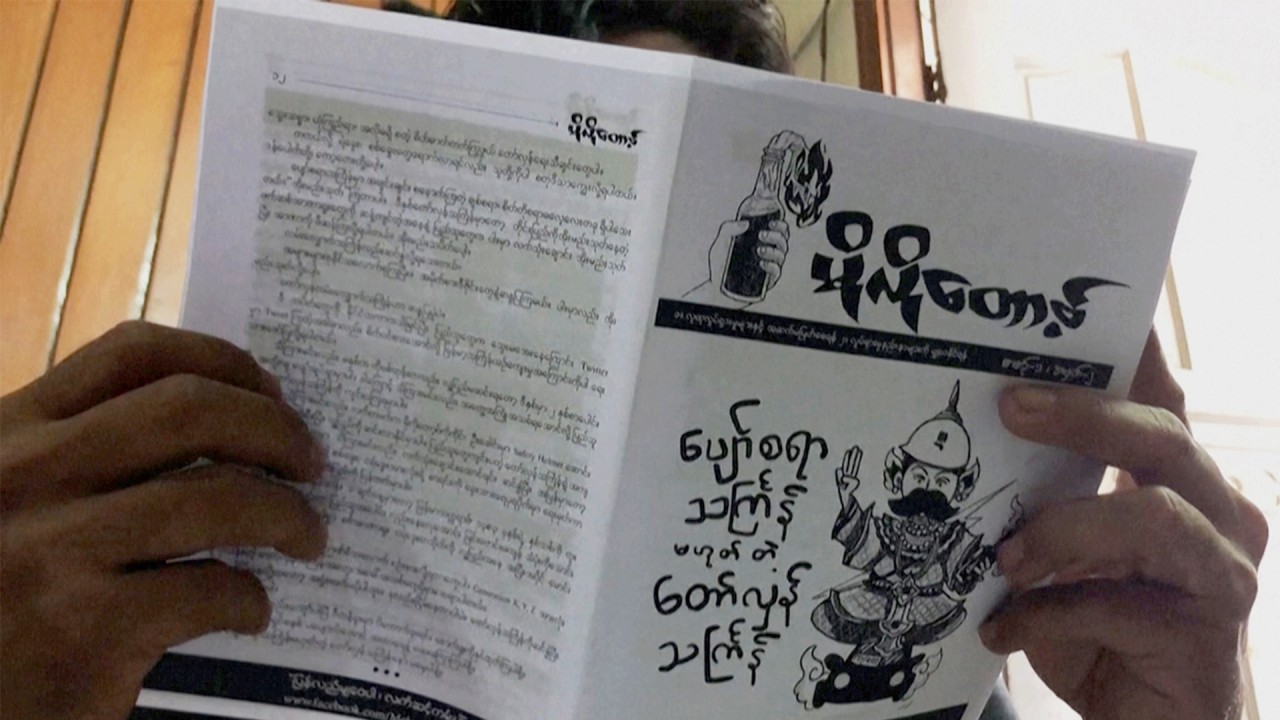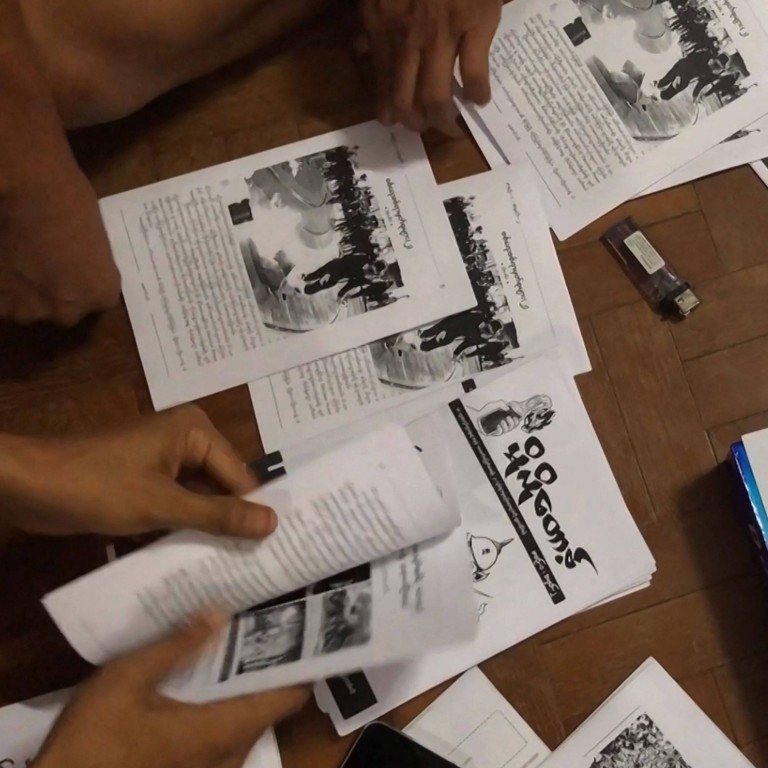
Myanmar protesters defy junta’s internet curbs with underground newsletters, as death toll crosses 700
- The Assistance Association for Political Prisoners (AAPP) group has verified 701 civilian deaths since the coup, with at least 80 killed on Friday alone
- Myanmar has a long history of underground publications to circumvent junta suppression, with Gen Z activists secretly distributing a newsletter titled Molotov
For 56 days straight there have been internet outages in coup-hit Myanmar, according to monitoring group NetBlocks.
The country has been in turmoil since democratically-elected leader Aung San Suu Kyi was ousted in a February 1 coup, triggering a mass uprising that has resulted in a brutal security crackdown.
Asia’s #MilkTeaAlliance movement has a new target: Myanmar’s generals
Lynn Thant, not his real name, said he started the underground newsletter and gave it the edgy name Molotov to appeal to young people.
“This is our response to those who slow down the flow of information – and that’s a threat to us,” said the 30-year-old said, adding that he was aware of the risks involved.
Thousands of readers across the country are downloading the PDF version of the publication and printing out and distributing physical copies across neighbourhoods in Yangon and Mandalay and other areas.
Police and soldiers arrested more than 3,000 people since the putsch, according to local monitoring group Assistance Association for Political Prisoners (AAPP).
About 180 high profile celebrities including actors, singers and social media influencers are on an arrest warrant list and could face three years’ jail if convicted of spreading dissent against the military.
“If we write revolutionary literature and distribute it like this, we could end up in prison for many years,” he said, his face concealed by one of the Guy Fawkes masks popularised by the dystopian movie “V for Vendetta”.
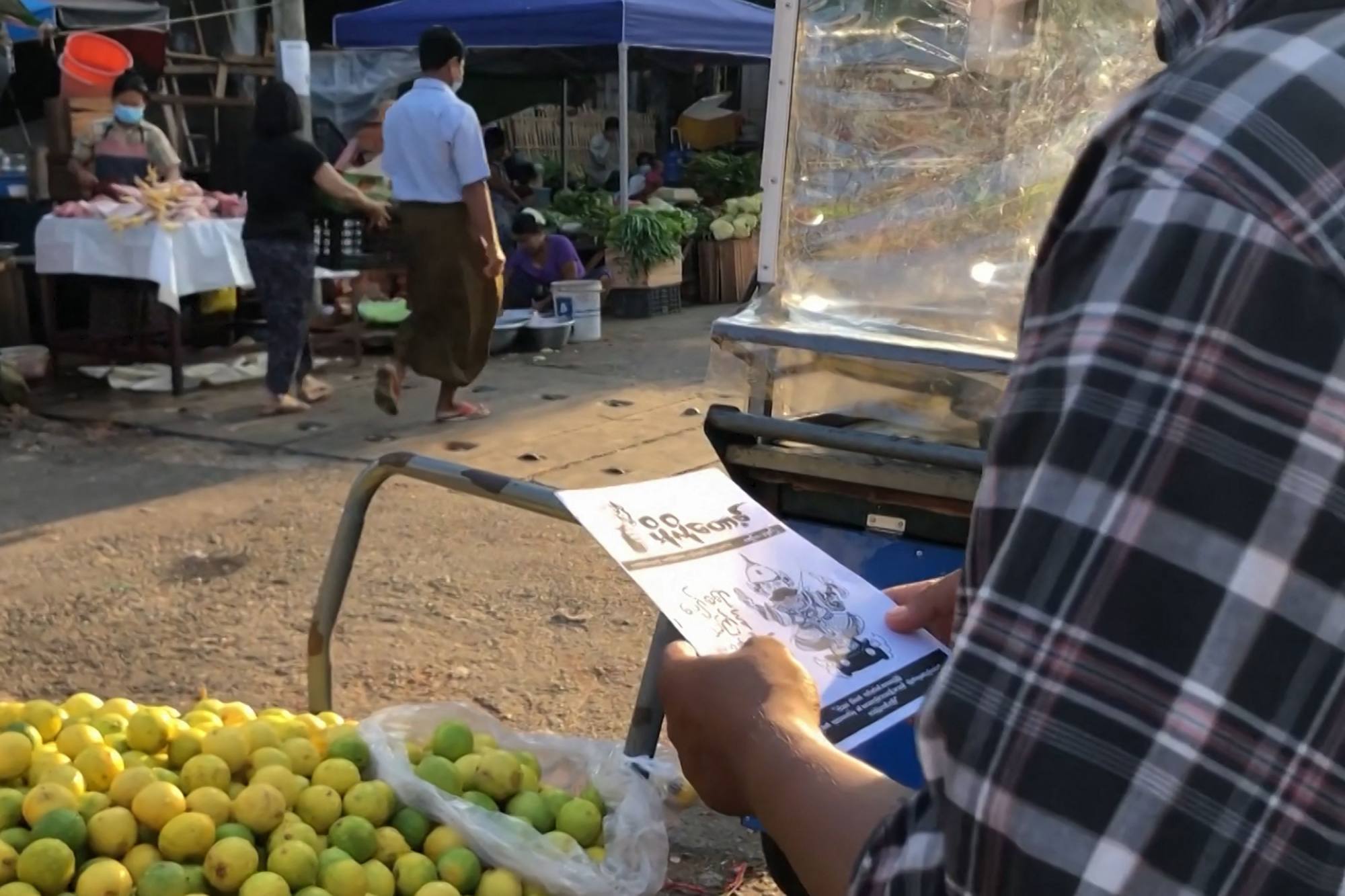
The country has a long history of underground publications attempting to circumvent junta suppression.
“Even if one of us is arrested, there are young people who will carry on producing the Molotov newsletter,” Lynn Thant said. “Even if one of us is killed, someone else will come up when someone falls. This Molotov newsletter will continue to exist until the revolution is successful.”
He said the publication had a reach of more than 30,000 people on Facebook so far and the main audience was Generation Z activists.
Copies of the newsletter are also being distributed under the radar at produce markets.
Myanmar junta may scapegoat insurgents to ‘rain hell’ on civilians: UN expert
Meanwhile, a security guard was wounded in a bomb blast outside a military-owned bank in Myanmar’s second-biggest city on Sunday morning.
The bank is one of scores of military-controlled businesses that have faced boycott pressure since the coup, with many customers demanding to withdraw their savings.
There has been heavy bloodletting in recent days. On Saturday, a local monitoring group said security forces gunned down and killed 82 anti-coup protesters the previous day in the city of Bago, 65km northeast of Yangon.
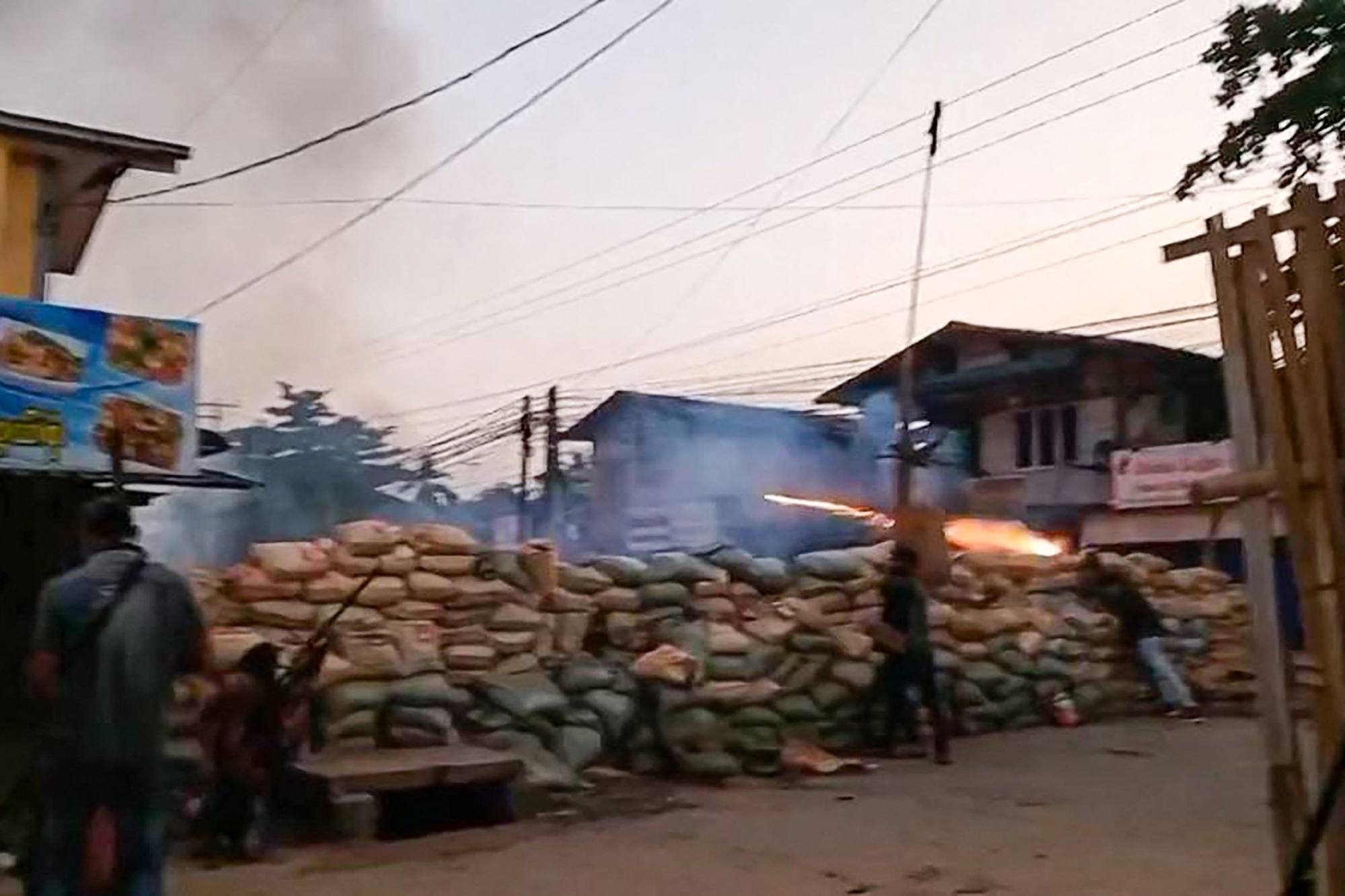
AFP-verified footage shot early on Friday showed protesters hiding behind sandbag barricades wielding home-made rifles, as explosions were heard in the background.
The United Nations office in Myanmar tweeted late on Saturday that it was following the bloodshed in Bago, where it said medical treatment had been denied to the injured.
Overall, the Assistance Association for Political Prisoners (AAPP) group has verified 701 civilian deaths since the putsch.
The junta has a far lower number: 248, according to a spokesman on Friday.
Despite the bloodshed, protesters continued to rally in parts of the country.
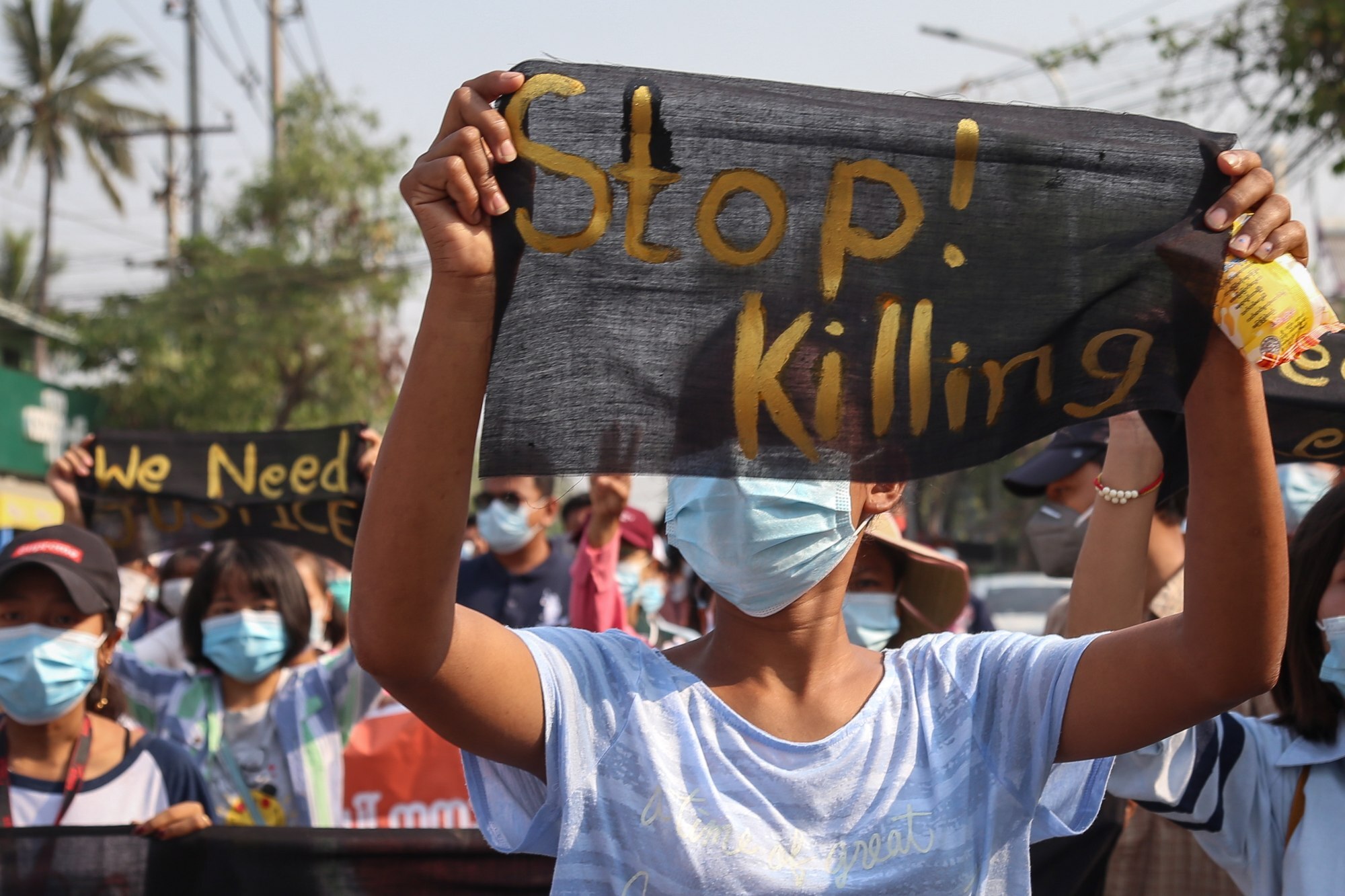
University students and their professors marched through the streets of Mandalay and the city of Meiktila on Sunday morning, according to local media.
Some carried stems of Eugenia flowers – a symbol of victory.
In Yangon, protesters carried a banner that read: “We will get victory, we will win.”
Protesters there, as well as in the city of Monywa, took to writing political messages on leaves including “we must win” and calling for UN intervention to prevent further bloodshed.
Across the country people have been urged to participate in a torchlight protest in their neighbourhoods after sunset on Sunday night.

.png?itok=arIb17P0)

